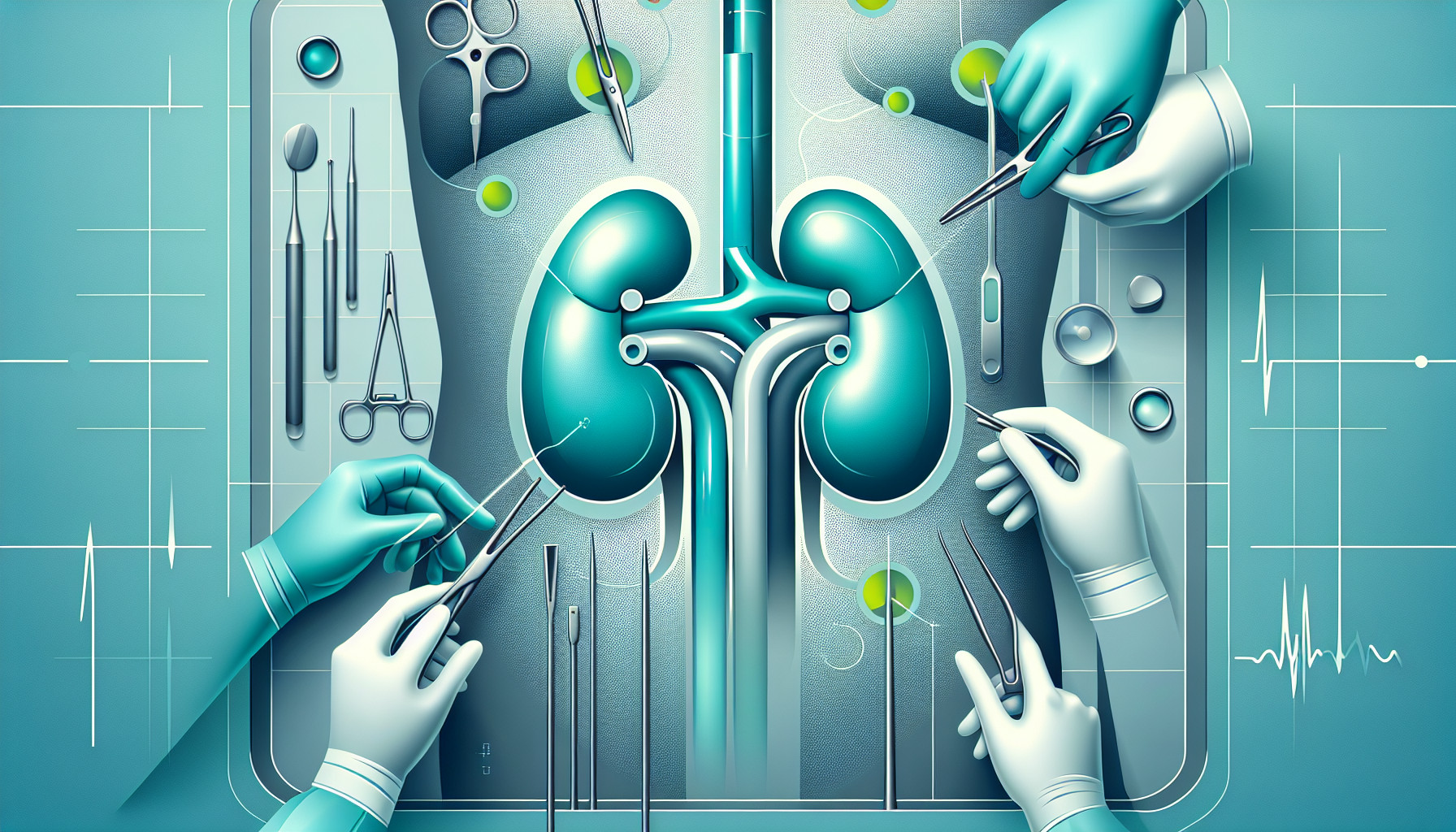Our Summary
This research paper is about the importance of understanding delayed graft function in kidney transplants from living donors. Delayed graft function is when the transplanted kidney doesn’t work properly right away. We already know it’s important in kidney transplants from deceased donors, but we don’t know as much about it in transplants from living donors. This is partly because there’s not as much research on it, and partly because people aren’t as aware of it.
The researchers looked at lots of different medical studies to get an idea of how often delayed graft function happens after kidney transplants from living donors, and what its effects are. They especially focused on studies from the Middle East. They found that delayed graft function is more common in the Middle East than in other regions. Even though it’s still less common than in transplants from deceased donors, it can still lead to the transplanted kidney being rejected or not working well, and can even affect the survival of the patient.
The researchers argue that we need to figure out what causes delayed graft function in kidney transplants from living donors, and come up with ways to prevent and treat it. They also call for more research on this topic.
FAQs
- What is delayed graft function in kidney transplants from living donors?
- How common is delayed graft function in kidney transplants from living donors, particularly in the Middle East?
- Why is there a need for more research on delayed graft function in kidney transplants from living donors?
Doctor’s Tip
A helpful tip a doctor might tell a patient about kidney transplant is to follow a strict medication schedule and attend all follow-up appointments. It’s important to take immunosuppressant medications as prescribed to prevent rejection of the transplanted kidney. Missing doses or not taking medications on time can lead to complications. Additionally, attending all follow-up appointments allows the medical team to monitor the function of the transplanted kidney and make any necessary adjustments to the treatment plan. Regular check-ups can help catch any issues early and ensure the best possible outcome for the transplant.
Suitable For
Patients who are typically recommended kidney transplant from living donors include those with end-stage renal disease, often caused by conditions such as diabetes, high blood pressure, or glomerulonephritis. Candidates for kidney transplant are usually on dialysis and have exhausted other treatment options. Additionally, patients who have a suitable living donor willing to donate a kidney are also recommended for kidney transplant.
Timeline
Before kidney transplant:
- Patient undergoes extensive testing to determine if they are a suitable candidate for a kidney transplant
- Patient is placed on the waiting list for a donor kidney
- Patient may undergo dialysis to manage their kidney disease while waiting for a transplant
- Once a suitable living donor is found, the transplant surgery is scheduled
After kidney transplant:
- Patient undergoes surgery to receive the new kidney
- Patient is closely monitored in the hospital for any signs of complications
- Patient may experience delayed graft function, where the transplanted kidney does not function properly right away
- Patient may need additional treatment to manage delayed graft function, such as dialysis or medication
- Patient is closely monitored in the following weeks and months to ensure the transplanted kidney is functioning properly
- Patient may need to make lifestyle changes and take medication to prevent rejection of the transplanted kidney
- Patient undergoes regular follow-up appointments to monitor the health of the transplanted kidney and overall well-being.
What to Ask Your Doctor
- What is delayed graft function and how common is it in kidney transplants from living donors?
- What are the potential causes of delayed graft function in kidney transplants from living donors?
- What are the potential effects of delayed graft function on the transplanted kidney and on the patient’s overall health?
- What measures can be taken to prevent or reduce the risk of delayed graft function in kidney transplants from living donors?
- Are there any specific factors or characteristics that may increase the likelihood of experiencing delayed graft function after a kidney transplant from a living donor?
- What are the current treatment options for managing delayed graft function in kidney transplants from living donors?
- How closely will my healthcare team monitor and manage the risk of delayed graft function following my kidney transplant from a living donor?
- Are there any lifestyle changes or precautions I should take post-transplant to reduce the risk of delayed graft function?
- What is the long-term outlook for patients who experience delayed graft function in kidney transplants from living donors?
- Are there any ongoing research studies or clinical trials investigating delayed graft function in kidney transplants from living donors that I may be eligible to participate in?
Reference
Authors: Al Otaibi T, Ahmadpoor P, Allawi AA, Habhab WT, Khatami MR, Nafar M, Glotz D. Journal: Exp Clin Transplant. 2016 Feb;14(1):1-11. PMID: 26862818
